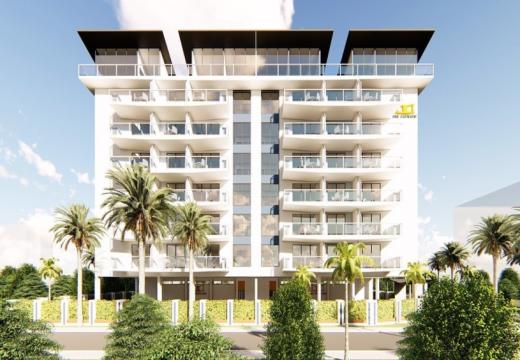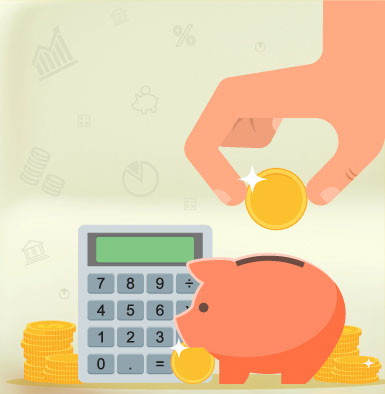What Is A Good Rental Yield And How To Achieve It In Ghana?
What Is A Good Rental Yield And How To Achieve It In Ghana?
- by PropHunt Admin
- On 09-08-2023
- at 2:16 PM

Investing in real estate has long been recognized as a lucrative opportunity to build wealth and secure a stable financial future. However, one key metric real estate investors closely monitor is rental yield. Before you invest in real estate, you should familiarize yourself with the term rental yield.
Rental yield is a fundamental indicator of a property's income-generating potential. In the vibrant and dynamic real estate market of Ghana, understanding what constitutes a good rental yield and how to achieve it is essential for both seasoned investors and those seeking to enter the property market.
In this article, we’ll explain what a rental yield is in the context of Ghana's real estate landscape and provide practical insights into strategies that can help investors attain a good rental yield on their investment properties.
What Is A Rental Yield?
Rental yield, expressed as a percentage, is a fundamental metric used to assess the return on investment for a rental property. It indicates the property's annual rental income as a percentage of its overall value.
In the Ghanaian context, where the real estate market is experiencing steady growth and rapid urbanization, rental yield plays a pivotal role in determining the attractiveness of property investment. Understanding rental yield allows investors to make informed decisions about potential investment opportunities, assess the property's cash flow potential, and gauge its profitability over time.
However, achieving a good rental yield is not merely a matter of luck; it requires a well-informed approach, market insights, and a clear understanding of the factors influencing rental performance. The rental yield is typically expressed as a percentage and can be calculated in two main ways:
- Gross Rental Yield: The Gross rental yield is the simpler of the two calculations and is determined by dividing the annual rental income of the property by its total value, or purchase price.
- Net Rental Yield: This takes into account the various expenses associated with owning and operating the rental property. These expenses may include property management fees, maintenance costs, property taxes, insurance, and other relevant costs.
Factors That Impact Rental Yield In Ghana
Several factors influence rental yield in the Ghanaian real estate market. It is, however, important that property investors understand these factors to make informed decisions and maximize their rental income potential.
How Do You Calculate Rental Yield In Ghana?
Calculating rental yield in Ghana follows the same principles as in other real estate markets. As mentioned earlier, there are two main types of rental yield calculations: gross rental yield and net rental yield.
- Gross Rental Yield: The gross rental yield is a straightforward way to calculate the return on investment before factoring in expenses. It is expressed as a percentage and measures the rental income generated relative to the property's total value. The formula for calculating gross rental yield is as follows:
Gross Rental Yield = (Annual Rental Income / Property Value) × 100
To calculate the gross rental yield for a property in Ghana, you'll need to determine its annual rental income and its total property value. The annual rental income is the total amount of rent the property generates over a year, while the property value is typically the purchase price or current market value of the property.
For example, if a property in Ghana generates an annual rental income of GH₵24,000, and its property value is GH₵400,000, the gross rental yield would be:
Gross Rental Yield = (GH₵24,000 / GH₵400,000) × 100 = 6%
This means that the property's gross rental yield is 6%, indicating that it generates a 6% return on investment through rental income alone, without accounting for expenses.
- Net Rental Yield: The net rental yield also takes into consideration the various expenses associated with owning and operating the rental property. This calculation provides a more accurate representation of the property's profitability by factoring in costs such as property management fees, maintenance expenses, property taxes, insurance, and other relevant charges. The formula for calculating net rental yield is as follows:
Net Rental Yield = [(Annual Rental Income - Annual Expenses) / Property Value] × 100
To calculate the net rental yield for a property in Ghana, subtract the annual expenses from the annual rental income and then divide the result by the property value.
For example, if the same property generates GH₵24,000 in annual rental income but incurs GH₵6,000 in annual expenses, the net rental yield would be:
Net Rental Yield = [(GH₵24,000 - GH₵6,000) / GH₵400,000] × 100 = 4.5%
This means that the property's net rental yield is 4.5%, considering the actual income after deducting expenses.
Why Are Rental Yields Calculations Important?
You should understand that both gross and net rental yield calculations are essential tools for investors in Ghana's real estate market. This is done to assess the performance and potential of rental properties. By using these calculations, investors can make informed decisions, compare different investment opportunities, and develop strategies to achieve a good rental yield in Ghana.
Many people invest in real estate to benefit from the future cash flow of rental income. Hence, if you want to optimize your revenue, you must ensure that you create a high rental return. No investor wants to lose money on a business venture. This is why, in order to achieve the best rental returns, you should seek out more cheap houses with higher rental expenses.
What Is A Good Rental Yield Amount In Ghana?
A low rental yield, say between 2-4%, may indicate that the property is overpriced. A property with a high rental yield (e.g., 8-10%), on the other hand, may indicate that it is undervalued or below market value.
When buying a property to let in Ghana, you'll want to know the rental yield, which is the return on your investment expressed as a proportion of the money spent. So, for example, if you paid $1 million for a property and made $1,500 per month in rent, your gross rental yield would be $1,500 x 12 / $1 million = 1.8%. Of course, this would be considered a poor yield.
Generally, gross rental yields in Ghana are averaging 8%–11%, which is good. Because Accra's rental market is relatively big, with 37.5% of all households renting (compared to 22% in Ghana overall), Only about 40.4% of Accra households own their homes (57.4% in Ghana), while another 20.5% live rent-free (19.5% in Ghana). The remaining 1.6% of housing is provided by employers (4.5% in Ghana).
Best Strategies to Achieve a Good Rental Yield in Ghana
A good rental yield is typically considered to be 8% or higher. This means that the annual rent collected is equal to 8% or more of the purchase price of the property. There are a few things you can do to achieve a good rental yield in Ghana:
- Buy in a desirable location with high demand for rental properties.
- Purchase a property that is in good condition and does not require major repairs.
- Keep your rental rates competitive.
- Manage your property effectively and keep it well-maintained.
- Consider investing in properties offering additional income streams, such as Airbnb or vacation rentals.
It is important to note that rental yields can vary depending on the location, type of property, and other factors. It is always important to do your research and consult with a financial advisor before investing in rental properties.
Conclusion
Investing in real estate in Ghana can be a rewarding venture, but it comes with its own set of challenges and considerations. Therefore, it is crucial for investors to adopt a long-term perspective and make well-informed decisions to navigate the ever-changing real estate landscape effectively.

 French
French




